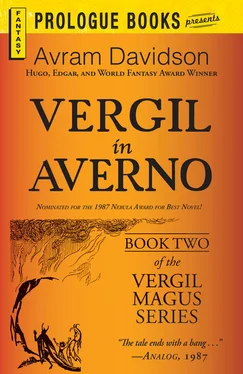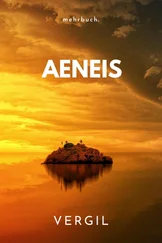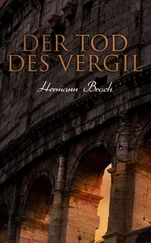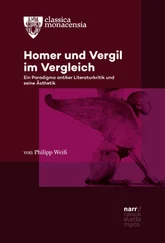Avram Davidson - Vergil in Averno
Здесь есть возможность читать онлайн «Avram Davidson - Vergil in Averno» весь текст электронной книги совершенно бесплатно (целиком полную версию без сокращений). В некоторых случаях можно слушать аудио, скачать через торрент в формате fb2 и присутствует краткое содержание. Жанр: Фэнтези, на английском языке. Описание произведения, (предисловие) а так же отзывы посетителей доступны на портале библиотеки ЛибКат.
- Название:Vergil in Averno
- Автор:
- Жанр:
- Год:неизвестен
- ISBN:нет данных
- Рейтинг книги:3 / 5. Голосов: 1
-
Избранное:Добавить в избранное
- Отзывы:
-
Ваша оценка:
- 60
- 1
- 2
- 3
- 4
- 5
Vergil in Averno: краткое содержание, описание и аннотация
Предлагаем к чтению аннотацию, описание, краткое содержание или предисловие (зависит от того, что написал сам автор книги «Vergil in Averno»). Если вы не нашли необходимую информацию о книге — напишите в комментариях, мы постараемся отыскать её.
Vergil in Averno — читать онлайн бесплатно полную книгу (весь текст) целиком
Ниже представлен текст книги, разбитый по страницам. Система сохранения места последней прочитанной страницы, позволяет с удобством читать онлайн бесплатно книгу «Vergil in Averno», без необходимости каждый раз заново искать на чём Вы остановились. Поставьте закладку, и сможете в любой момент перейти на страницу, на которой закончили чтение.
Интервал:
Закладка:
“My lord seems pensive,” said someone strange to him, perhaps one of the outsiders who had inherited a business in Averno and returned now and then to show he was still liable to return now and then, in hopes of minimizing the inevitable peculation for which prolonged absence from business gives such excellent opportunity to those who remain present at the business scene. A flaccid fellow, this, with sense enough to be dressed neither negligently nor ostentatiously; but this was perhaps due to his valet, and his valet could not provide him with sense in conversation. . or, for that matter, much in anything else.
“Perhaps my lord is thinking of this important matter now before us.” The immediate matter now before them consisted of an enormous quantity of wine, so spiced and honeyed and fruited as to lead one to suspect the quality of the vintages whose tastes were thus disguised. “Great heat, what we might term, I ask my lord’s opinion, intense heat? Eh — not only produces great effects when produced on the surface, but performs very wonderful transformations among things below the surface, as we may see in De Natura Fossilium … in De Natura Fossilium we may see that — but surely my lord will know of all this, of course, being a Consul of Philosophy, as I do perceive.”
Vergil thought it likely that the man perceived very little, but instead he said, “Hardly. No. Nor am I to be honored as ‘lord’ ” — some old echo in this thought here; but he did not pause. “Neither am I nor was I ever a Consul in Philosophy; I was a student and sat at the feet of more than one. But I am not one.” The fellow heard him out politely. But he was clearly dubious about the disclaimer; it may be that he was dubious about anyone’s disclaiming an honor, for it was less than dubious that he would disclaim any himself. Somewhere he had picked up the title of De Natura Fossilium, and the being able to mention it and the scrap or two of something contained in it was for him a merchandise or coinage that would never wear out. A fortunate man (thought Vergil), to have so little and to be so rich.
They were saved by Lars Melanchthus from any further need to discuss any sentence in De Natura Fossilium. Lars Melanchthus shouted, “Well, you have eat enough salad and such now, Wizard, needn’t fear getting slop-slop; so, now, Wizard, drink!” Vergil did usually not require shouts in order to drink, the drink need not be “the best Falernian,” but this time it might have been that without the shout he would have done without the drink. Still, the shout had come. A single word came to his mind, and said more than a volume of elaborate Stoic philosophy. Therefore . One of the butlers came forward and dispensed for Vergil, who bowed, poured his libation-drops, and sipped. The wine was, alas, just as he feared. But dally as he would, he was from time to time summoned to drink more. The magnates needed no shouts to urge themselves on. Again Melanchthus called out, wiping his oozy chin. “We were sending to send for you, Wizard, yes! Yes! Only, being wizard, you knew, ha-ho!”
Ha-ho, indeed, thought Vergil. What he knew was that there was enough strong spice and crushed fig in this ghastly mixture, this hideous hippocras, to physic a horse sicker than Hermus had been. Perhaps if he drank enough of it, it might numb his taste. . or distaste. So. . therefore . . he did drink more. In any civilized city the leading men would regard drunkenness with abhorrence; hence the customary precautions against it. But here, here the alexipharmic salad herbs, the roasted goat-lung, the boiled owls’ eggs, the ivy wreaths, and all of that was evidently a mere show: They did not wish to use these to prevent becoming drunk, they were determined to become drunk in spite of having used them. A mere show. As was so much in Averno. Ah, well. . His mind thought and sought another saw or wise-word or. . Ah. When in Averno …
When in Averno, what? This time the arriving of the answer was interrupted, for when one of the servants stumbled slightly and spilled somewhat more than a few libation-drops upon the costly robe of Grobi, Grobi, without even rising, struck the cupbearer such a blow below the navel that, with one sick shriek, he fell, doubling up, and crashed to the floor, where he lay, still writhing, and bleeding among the shattered shards of the mixing bowl which his fall had brought crashing down with him. Much laughter among the magnates. Grobi next performed an action closely similar to one that Vergil had already seen locally performed before: Hoisting his robe, he urinated. . not, to be sure, directly onto the floor, but onto the man who lay there. Immense laughter among the magnates.
And so the rank ritual continued. There being neither water-clock nor sandglass in sight, Vergil did not know how long it had continued, when, by the arrival of steaming goblets which, from their vile odor, did not contain hot wine however bad, he was given notice that the first stage of the gathering was coming to a close. The goblets held that horrid black brew, broth of Sparta, made of pigs’ bones, vinegar, sows’ wombs, and salt; by some account a general staple of that ever-dangerous kingdom; by other accounts merely the sole sustenance provided for the Spartan striplings during their long term of semi-secluded training. Here in Averno it was regarded as a cure for the drunkenness against which the cabbage, parsley, cress, and so on and on had been no prophylactic at all, nor even the eggs of owls, sacred to Athenian Minerva who had ever from ancient times been the adversary of Asian Dionysus and thus of all drunkenness.
“ ‘Twould have been better to have cooked the salad in the soup,” croaked Vergil. The magnates bellowed loudly at this, then — many of them — vomited into the broad basins held for them by the servants, gulped more of the black hell-broth — and on that went. And on. And on.
By and by the next stage of the session was reached. And even by the standards of stinking Averno, by that time the chamber stank.
The same silent Levantine (if Levantine he was) who had shown Vergil up to the chamber on the second story materialized with a miraculously clean table, and -
— and the case containing Vergil’s carefully made maps. Who now asked, demanded, “How came those here, Magnates?” For, certainly, he had not brought them with him.
There were a few grunts of “Uhl” of surprise, not. . it seemed. . of surprise that the maps were there as that he should ask how they came to be there. One who spoke better Latin than the others took it upon himself to answer. “You made them, Master Wizard, for us. Not so? It will be that we have bought, and so. . and so we have brought.” The still-silent Greek or Syrian, or be he whatever he was (he was or had been, surely, a slave: that was the substance. . and the essence. . of his condition), carefully removed the maps from the cylindrical case of cow’s leather; set them on the table. The man was as one who makes motions behind a sheet at a shadow-play, whilst the dialogue is pronounced by others. On the side.
There was a very curious locution in the phrase It will be that we have bought, one that the grammarians likely could not approve (for one thing, it was not found in the books of Homer or the speeches of Cato); but, no possible model for good common usage or rhetoric though it was, it was as full of reminder as an egg was of meat. By the magnates’ having commissioned the work, the work was theirs to command and to bring and fetch — rather, to have it brought and to have it fetched — but they had not yet paid for it! — and should they, for any reason, eventually decide not to pay for it, what was he to do? — Though they had used it as though they had paid for it — what was he to do? No lawyer back in the small port where he was still so new in both residence and practice would seriously engage a suit against the Very Rich City, though, to be sure, some one or two or three might not object to mulcting him for out-of-pocket expenses. . at the least. . and if he were to seek more serious counsel in, say, Naples, why, what could they advise him there save to proceed to Rome and try to interest one of the great jurisconsults at Apollo’s Court. No. He bowed, a very slight bow, one of civil acknowledgment, as though having received a civil reply. And he said nothing.
Читать дальшеИнтервал:
Закладка:
Похожие книги на «Vergil in Averno»
Представляем Вашему вниманию похожие книги на «Vergil in Averno» списком для выбора. Мы отобрали схожую по названию и смыслу литературу в надежде предоставить читателям больше вариантов отыскать новые, интересные, ещё непрочитанные произведения.
Обсуждение, отзывы о книге «Vergil in Averno» и просто собственные мнения читателей. Оставьте ваши комментарии, напишите, что Вы думаете о произведении, его смысле или главных героях. Укажите что конкретно понравилось, а что нет, и почему Вы так считаете.












